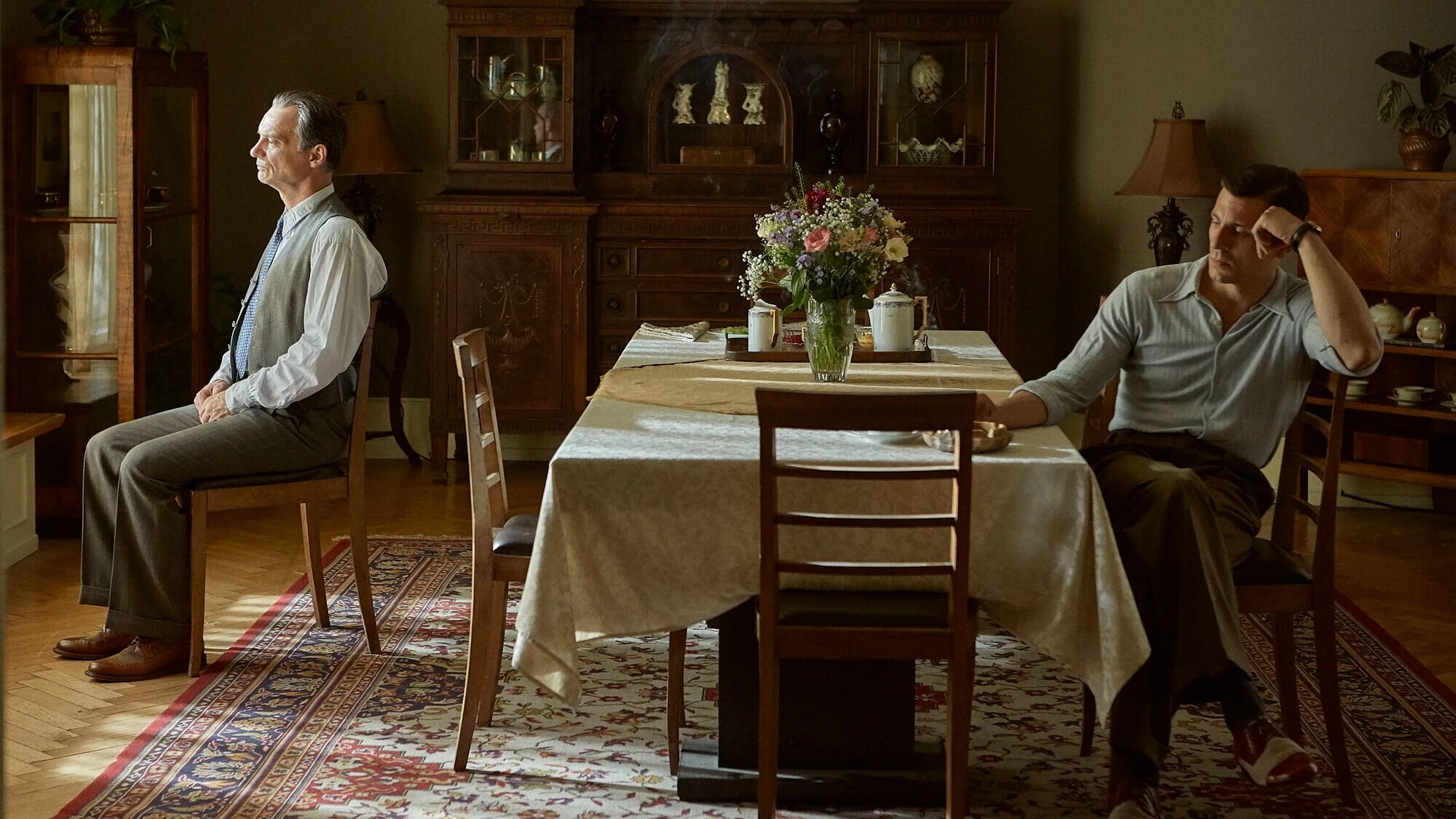Charlatan
A controversial real-life figure is central in a film that finds him more hero than villain.
This new work from the veteran Polish director Agnieszka Holland finds her working in the Czech Republic, an echo of the days when as a youngster she studied film in Prague. Written by Marek Epstein, the film is centred on a real-life figure, Jan Mikolášek who lived from 1889 to 1973 and it begins in 1957 with the death of Antonin Zápotocký, the Czech president who had been treated by him and was accordingly a supporter. It was an event that marked a turn in Mikolášek's fortunes since up to that point he had prospered and had become famous as a herbal healer, but after 1957 the state authorities disliking his popularity and disapproving of his strong religious attitude sought to bring him down. Mikolášek with his belief in plants for medicinal purposes had long been regarded by some as a con man and, despite the numbers who claimed to have been cured by him, that's a viewpoint that still persists in some quarters today. However, regardless of its title, Holland's film believes in his abilities even though it acknowledges that his behaviour could be disturbing.
Many who go to see Charlatan but live outside of the Czech Republic will doubtless know little or nothing of Mikolášek and he may be thought an odd subject for a biopic. It is certainly novel to have as a hero a man who, while never claiming to be a doctor, treated patients by first diagnosing their ailments from an inspection of their urine. But, if the material might seem to be of questionable weight, Holland approaches it with a bold confidence. Of late much of her work has been for television and it is arguable that the best of her cinema features were made back in the 1990s ranging from Europa, Europa to her outstanding version of The Secret Garden. However, the first hour of this two-hour piece finds her on her very best form aided by the fact that her lead actor Ivan Trojan is perfectly cast and roots the film in a way that makes the drama totally involving.
Although the film starts mid-way in Mikolášek's career, we are shown his earlier life through flashbacks including scenes when as a young man (a role played by Ivan Trojan's son, Josef) he was first made aware of medicinal ideas that would become central in his life. This occurred through a bond that he formed with a village healer named Josefa Mühlbacherová (Jaroslava Pokorná) but, if much of this is very much part and parcel of a past age, it could well be that Holland's response to the material is linked to issues that remain current. In dealing with herbalism there is no doubt that Charlatan stands as an endorsement of alternative medicines and in asking us to be open-minded the film reminds us of the controversies that continue to flourish over homeopathy.
If the second half of Charlatan is less effective than the first, that is down to the writing. The end credits make it clear that fictional elements have been introduced and this appears to relate in particular to the relationship between Mikolášek and his assistant František Palko (Juraj Loj). I understand that, despite both men having married, there has long been conjecture as to a possible gay relationship between them. As was also the case recently with Ammonite, the film has converted a possibility into an assertion and, if the first half of Charlatan plausibly suggests a special bond, the second half suddenly goes much further and makes same-sex love a central feature. Given that end credit one may accept this without too many qualms, but unfortunately the screenplay takes on a more fictional tone in these scenes which consequently causes them to feel less believable than what has gone before. It's also the case that, having taken this route, the film then fails to explore fully the conflict impliedly felt by Mikolášek due to his Catholic beliefs and his sexual life-style.
Even beyond that particular issue, there is a sense of the film never quite getting to grips with a darker side that appears to have existed in Mikolášek's character. He was capable of cruelty to people and the film includes a scene depicting his savage killing of kittens but this aspect is no more than touched on. Was this ruthlessness born of conflicts that caused Mikolášek to feel the need to assert himself and to release anger and frustration that would build up inside him? Having pointed in that direction, the film fails to go there and instead winds up as a kind of courtroom drama. Charlatan is an interesting film but one very much at its best when dealing with Mikolášek's career in alternative medicine and less sure-footed by far when elaborating what in part may be an imagined private life.
MANSEL STIMPSON
Cast: Ivan Trojan, Josef Trojan, Juraj Loj, Jasoslava Pokorná, Jirí Černý, Mirislav Hanuš, Ladislav Kolár, Martin Sitta, Jan Vlasák, Barbora Milotová, Martin Mysicka, Lenka Veliká, Mekika Yildiz, Igor Bares.
Dir Agnieszka Holland, Pro Šárka Cimbalová and Kevin Van Thompson, Screenplay Marek Epstein, from an idea by Martin Sulc and Jaroslav Sedlácek, Ph Martin Strba, Pro Des Milan Bycek, Ed Pavel Hrdlicka, Music Antoni Komosa-Lazarkiewicz, Costumes Katarína Štrbová Bieliková.
Marlene Film Production/Czech Television/Barrandov Studio/Furia Film/Magic Lab/Studio Metrage-AX1 Films.
118 mins. Czech Republic/Ireland/Slovakia/Poland. 2020. Rel: 7 May 2021. Available on Curzon Home Cinema and BFI Player. Cert. 15.


